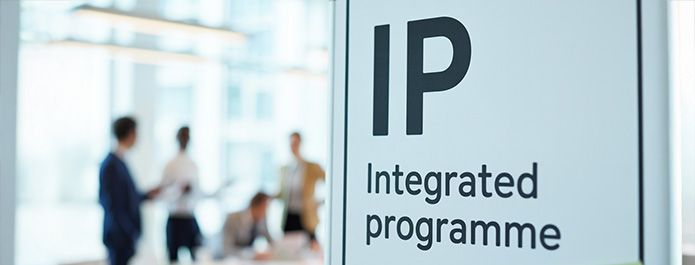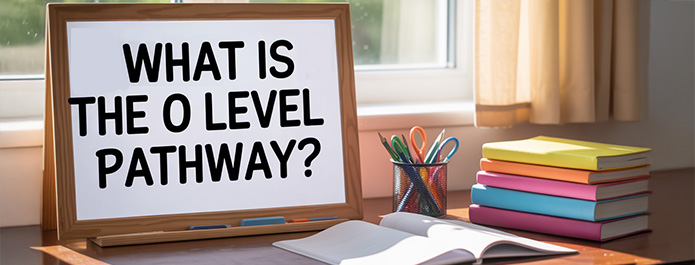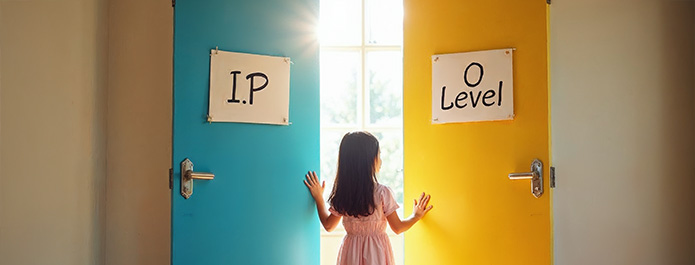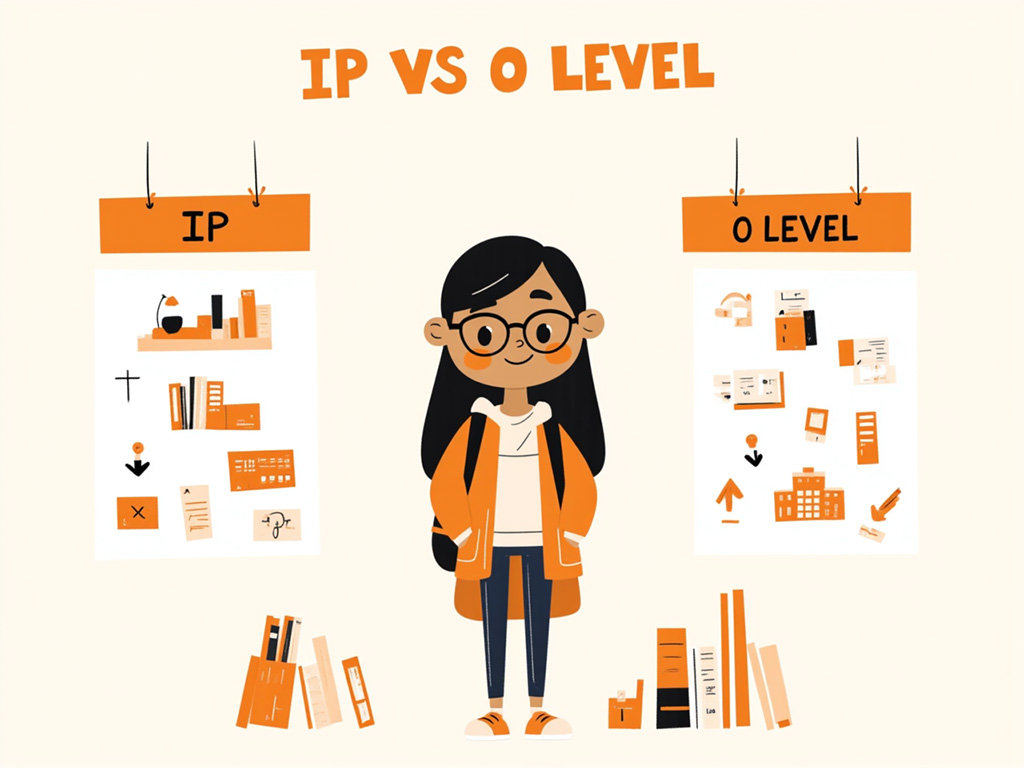Choosing between the Integrated Programme (IP) and O Level pathway is one of the most significant decisions Singapore parents face after PSLE results. Parents must carefully consider which option best suits their child's learning style, interests, and long-term goals. This choice shapes your child's next six years and can impact their university prospects, stress levels, and overall secondary school experience.
With recent changes to Singapore's education system, including the introduction of Full Subject-Based Banding and upcoming reforms, understanding these pathways has become more crucial than ever. This comprehensive guide will help you make an informed decision based on your child's unique needs and circumstances.
What is the Integrated Programme (IP)?

The Integrated Programme is a 6 year programme that allows students to skip the O Level examinations entirely. The IP is a streamlined, elite pathway designed for high-achieving students, enabling them to proceed directly from secondary school (Years 1-4) to junior college equivalent (Years 5-6), culminating in A Level examinations or International Baccalaureate programmes.
Currently, 17 schools in Singapore offer IP, serving approximately 4,000 students annually. This represents about 10% of each PSLE cohort, making it highly selective and competitive. Notable examples include the nus high school of Mathematics and Science, which is a school of mathematics and science with a strong focus on advanced education in these subjects. At NUS High School of Mathematics and Science, the curriculum is tailored for students with a passion for and aptitude in the fields of mathematics and science.
IP schools have greater curriculum flexibility, allowing them to design innovative learning experiences. The IP curriculum is designed with a flexible and innovative approach to support students' academic journey. Students often engage in research projects, overseas immersion programmes, and specialized tracks that go beyond traditional academic subjects, with a particular emphasis on mathematics and science, which are crucial for building a strong foundation for university studies and research.
What is the O Level Pathway?

The O Level pathway, also known as the O Level track, follows the traditional 4-year secondary education structure, leading to the GCE O Level examinations at the end of Secondary 4. Students in this track prepare for the O Levels examinations, which are a key milestone before advancing to further education. This route serves the majority of Singapore’s secondary students across 147 secondary schools.
Students typically take 7-8 O Level subjects, including compulsory English, Mother Tongue, Mathematics, and combined sciences or pure sciences. The structured curriculum is based on the O Level syllabus, ensuring comprehensive coverage of fundamental knowledge across diverse subject areas. In the O Level system, students have access to a wide range of subject offerings and a clear, exam-focused structure.
After O Levels, students can progress to Junior Colleges, polytechnics, or the Institute of Technical Education, providing multiple pathways for different interests and career goals. Some students in the Integrated Programme may transfer to the O Level track if they find the IP less suitable, allowing them to take the O Levels examinations. The 2024 O Level examination saw 22,661 candidates with strong performance outcomes.
Key Differences at a Glance
Duration and Structure: When choosing between the IP and O Level pathways, it's important to consider the differences in duration and structure. IP requires a 6-year commitment with no intermediate qualifications, while O Level provides a recognized certificate after 4 years, which is a key distinction for students who may want an early qualification. IP students who struggle have only their PSLE certificate as a safety net.
Entry Requirements: IP typically requires PSLE scores of 6-9 points for the most competitive schools. O Level pathway accepts a broader range of students with PSLE scores from 4-20 points for Express courses. For students who prefer a more structured and exam-based approach, the O Level track may be a better fit, while the IP may be a better choice for those who thrive in a less exam-focused environment.
Academic Workload and Assessment
IP Assessment Approach: IP students face continuous assessment through project work, research assignments, and analytical tasks. Many report working past midnight regularly due to multiple concurrent projects and the absence of structured exam preparation periods. In the IP, assessments are designed to align with the IP curriculum, focusing on skills such as independent research and critical analysis, and students often receive support tailored specifically for challenges encountered in the IP.
The emphasis is on independent learning, critical thinking, and holistic development rather than exam-focused preparation. Students begin exploring A Level concepts from Secondary 1, providing early exposure to advanced material with a strong foundation for future academic pursuits.
O Level Assessment Structure : O Level students follow structured timelines leading to national examinations in Secondary 4. The system provides clear milestones and regular feedback, helping students track their progress systematically.
While the final 1.5 years intensify with exam preparation, the overall workload is more balanced throughout the 4-year period. Students benefit from proven teaching methodologies refined over decades.
University Preparation and Outcomes
Both pathways lead to equivalent university qualifications with equal recognition by local and international institutions. However, their preparation approaches differ significantly. While the O Levels and A Levels are both key milestones, IP students typically bypass the O Levels and proceed directly to the A Levels, whereas O Level students follow the traditional route.
IP University Preparation: IP students develop strong research skills, independent learning capabilities, and analytical thinking through their 6-year journey. Over 95% of IP graduates qualify for local autonomous universities, though this partly reflects the programme’s selective intake. After completing the Integrated Programme, students move on to take the A Levels, which are essential for university admission.
The broader curriculum and enrichment opportunities provide valuable experiences that universities value. Students often enter university with greater confidence in research and project-based learning.
O Level University Preparation: O Level students receive systematic preparation with proven effectiveness. The structured approach ensures solid foundational knowledge across core subjects, which serves as an excellent base for further specialization.
About 44% of O Level graduates proceed to Junior Colleges, where they compete for university places through the Joint Admissions Exercise. This competitive process, while challenging, offers multiple pathway options for different interests.
Who Should Consider IP?
IP suits students who thrive with minimal structure and advanced challenges. The programme is suitable for students who are self-directed, academically ambitious, and comfortable with project-based learning and research methodologies.
These students should handle pressure well and be committed to the university-bound academic track. Those interested in leadership roles, intellectual exploration, and innovative learning approaches particularly benefit from IP's holistic environment.
Financial sustainability over 6 years requires careful consideration, including opportunity costs and additional programme expenses beyond school fees.
Who Should Consider O Level?
O Level suits students who benefit from structure and clear guidance in their learning journey. It's ideal for students uncertain about future pathways who want flexibility to explore different options post-secondary.
Late bloomers, students considering polytechnic routes, or those preferring milestone-based achievement often find O Level more suitable. The pathway supports systematic learners who thrive with clear expectations and regular feedback.
Students who may struggle with intense workloads benefit from the more balanced approach that O Level provides throughout the secondary years.
Recent Changes and Future Implications
Singapore's education system is undergoing significant transformations that affect both pathways. The 2024 implementation of Full Subject-Based Banding has replaced traditional streaming, allowing students to take subjects at different levels within the same school.
From 2027, the Singapore-Cambridge Secondary Education Certificate (SEC) will replace O Level examinations entirely. Current Secondary 1 students will be the first to sit these unified examinations that combine different subject levels.
These changes aim to provide greater flexibility and reduce academic pressure while maintaining educational standards. Both pathways are adapting to serve diverse student needs more effectively.
Making the Right Choice for Your Child

The decision should prioritise your child’s characteristics over prestige or conventional wisdom. It is essential to consider your child's individual needs, learning style, and long-term aspirations rather than just academic ability. Understanding your child's emotional and academic readiness will help you make a more informed choice.
Key evaluation questions include: Can your child handle independent learning? How do they cope under pressure? Do they prefer structure or open-ended exploration? Are they definitely university-bound or still exploring options? As a parent, you can help your child by discussing these questions openly and supporting them in reflecting on their strengths and preferences.
There are many resources and guidance available that can help your child make the best decision for their future. Remember, your child is not alone in this journey—support systems and expert advice are available to guide them.
Visit schools and gather diverse perspectives by speaking with current students, parents, and teachers from both pathways. Remember that success depends more on pathway-student fit than on the inherent superiority of either system.
The Importance of Academic Support for O Level Success

While IP students often rely on their schools’ comprehensive support systems, O Level students and high school students frequently benefit significantly from additional academic guidance. The structured nature of the O Level curriculum makes targeted tuition particularly effective for reinforcing classroom learning and exam preparation.
Why O Level Students Need More Support
O Level students face unique challenges that make external academic support especially valuable. They must master substantial syllabus content in just 3.5 years while preparing for high-stakes national examinations. Unlike IP students who have 6 years to develop understanding gradually, O Level students need efficient, focused learning strategies.
The competitive Joint Admissions Exercise means O Level students cannot afford knowledge gaps. Strong tuition support helps ensure comprehensive understanding of challenging subjects like Pure Chemistry, Pure Physics, and Advanced Mathematics.
How Keynote Learning Supports O Level Excellence

At Keynote Learning, we treat education as more than just exam preparation. We strive to make learning a meaningful journey with the help of our experienced teachers, who focus on giving your child the critical thinking skills, problem-solving abilities, and the confidence needed to excel in their O Level examinations!
We provide:
Comprehensive O Level Science Tuition tailored for Secondary 3 and Secondary 4 students, designed to thoroughly cover the MOE syllabus for Pure Chemistry, Pure Physics, and Biology. Our structured approach reinforces key concepts and equips students with effective answering techniques for national examinations.
Targeted Mathematics Support that builds strong foundational knowledge while developing advanced problem-solving skills essential for both Elementary Mathematics and Additional Mathematics success.
English Language Excellence Programs that enhance writing skills, comprehension abilities, and oral communication confidence, ensuring students are well-prepared for all components of the O Level English examination.
Free access to our ThinkInn Virtual Learning Platform offering 24/7 on-demand video recaps and expert-curated resources, allowing students to review lessons and pace themselves during exam preparation.
Small class sizes with individual focus ensuring each student receives personalized attention and targeted support for their specific learning needs and academic goals.
Through these methods, we aim to help every O Level student become a confident, self-directed learner who can take control of their education. Whether they're seeking clarification on challenging Chemistry equations, step-by-step guidance through complex Physics problems, or simply better strategies to revise effectively, Keynote Learning is here to guide them every step of the way toward O Level success.
Our commitment to O Level excellence is demonstrated by our tutors' deep understanding of the examination format and requirements. Like the dedicated educators featured in The Straits Times who take O Level exams annually, our team stays current with the latest syllabus changes and examination trends to provide the most relevant and effective guidance for our students.
Conclusion
Unlike the independent learning approach required in IP programmes, O Level students benefit from systematic teaching methodologies that break down complex concepts and provide regular feedback. Our tutors are experienced in identifying common O Level pitfalls and provide targeted strategies to overcome them in subjects like Pure Chemistry, Physics, and Mathematics.
Both IP and O Level pathways successfully prepare students for university and career success. IP serves independent, academically ambitious learners seeking accelerated development, while O Level supports students who thrive with structure and value post-secondary flexibility.
As Singapore's education system continues evolving, focus on honest assessment of your child's learning style, stress tolerance, and long-term aspirations to make the best decision for their future success.

